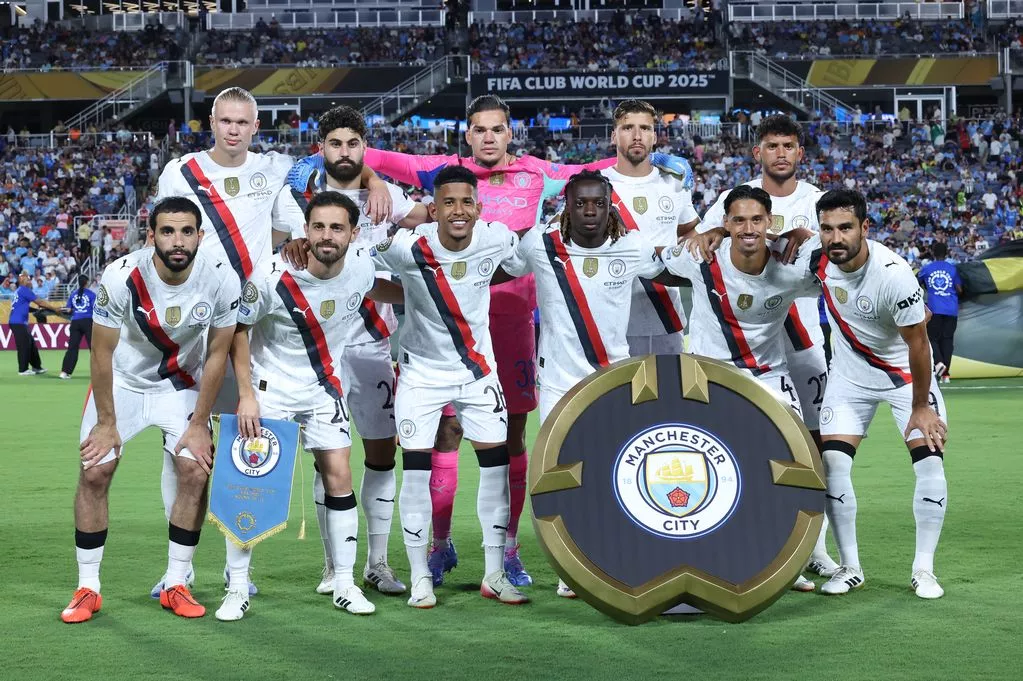Manchester City’s Missed Opportunity

The inaugural FIFA Club World Cup has concluded with unprecedented financial stakes, revealing both the enormous potential rewards and the significant costs associated with extended tournament participation. As Chelsea and Paris Saint-Germain contested the final in New Jersey, the financial implications of their respective journeys through the 32-team tournament have become starkly apparent, particularly when contrasted with Manchester City’s early exit and subsequent £60 million shortfall.
The revamped Club World Cup represents a seismic shift in the financial architecture of international club competition. With prize money reaching astronomical levels, the tournament has established itself as a potential game-changer for participating clubs’ financial positions. The winner’s prize of approximately £97 million dwarfs previous iterations of the competition, while even the runner-up receives a substantial £87 million consolation prize.
This financial restructuring reflects FIFA’s ambition to create a truly global club competition that rivals the UEFA Champions League in terms of prestige and financial reward. The organization has invested heavily in making the tournament attractive to Europe’s elite clubs, understanding that their participation is crucial for the competition’s credibility and commercial success.
The prize structure demonstrates a clear emphasis on rewarding progression through the tournament. Teams receive £1.5 million for each group stage victory, with additional bonuses for advancing through the knockout rounds. The £5.5 million reward for reaching the last-16 provides a significant incentive for clubs to take the competition seriously from the outset.
Manchester City’s journey in the Club World Cup serves as a cautionary tale about the fine margins in elite football and their potentially enormous financial consequences. Despite being among the tournament favorites, City’s shock 4-3 defeat to Al Hilal in the last-16 proved catastrophic from both sporting and financial perspectives.
The Citizens’ early elimination limited their prize money to a relatively modest £10 million, comprising earnings from group stage victories and their brief knockout stage appearance. This figure, while substantial in absolute terms, pales in comparison to what they might have achieved with a deeper tournament run.
City’s early exit becomes even more significant when considered alongside their recent domestic struggles. The club has faced increasing financial pressures related to the Premier League’s Profit and Sustainability Rules (PSR), making every additional revenue stream crucial for their long-term strategic planning. The lost opportunity to compete for the £97 million winner’s prize represents a significant setback in their efforts to maintain financial flexibility while continuing to invest in their squad.
The timing of City’s elimination proved particularly frustrating given the tournament’s structure. Their early exit opened up what appeared to be a favorable path to the later stages, with several potential opponents eliminated alongside them. This twist of fate highlights the unpredictable nature of knockout football and the importance of maintaining focus throughout tournament competition.
Chelsea’s progression to the final represents both a remarkable sporting achievement and a calculated financial risk. Their journey through all seven possible games in the United States has maximized their earning potential while simultaneously creating significant challenges for their preparation for the upcoming domestic season.
The Blues’ investment in the tournament has been substantial, both in terms of squad selection and physical commitment. Their decision to field a strong team throughout the competition reflects the financial stakes involved, with the potential £97 million prize money representing a significant portion of their annual revenue.
For Chelsea, the financial implications extend beyond mere prize money. The club has been navigating its own PSR challenges, making the tournament’s financial rewards particularly attractive. The potential windfall could provide crucial breathing room in their transfer planning and help offset some of the significant investments they have made in recent transfer windows.
The signing of Joao Pedro for £60 million has already proven its worth, with the former Brighton forward’s two goals in the semi-final victory over Fluminense arguably justifying the entire transfer fee. This immediate return on investment demonstrates the potential for smart recruitment to pay dividends in high-stakes competitions.
Beyond the performance-based prize money, FIFA has implemented a participation fee structure that rewards clubs merely for competing in the tournament. While the exact figures remain confidential, the organization has revealed that European clubs receive between £9.5 million and £28 million based on various criteria.
The formula for these participation fees likely considers factors such as UEFA coefficients, recent European performance, and historical success. Manchester City, given their recent Champions League triumph and consistent high-level performance, would reasonably expect to receive close to the maximum £28 million allocation.
This participation fee structure represents a significant guaranteed income stream for participating clubs, regardless of their tournament performance. For City, this means their total earnings from the competition reached approximately £38 million, despite their early exit. While this figure provides some consolation, it underscores the magnitude of their missed opportunity.
The guaranteed nature of these payments reflects FIFA’s understanding that securing the participation of Europe’s elite clubs requires substantial financial incentives. The organization has learned from previous iterations of the competition, where European clubs often sent weakened teams or showed limited enthusiasm for the tournament
The extended nature of the Club World Cup creates unprecedented challenges for participating clubs, particularly those from Europe’s major leagues. The tournament’s four-week duration, combined with the travel and acclimatization requirements, represents a significant physical and mental burden on players.
Chelsea’s progression to the final means their players will have competed in seven high-intensity matches over the course of the tournament. This extended commitment creates a complex calculation for the club’s coaching staff, who must balance the financial rewards against the potential impact on their domestic season performance.
The timing of the tournament, positioned during what would traditionally be a brief mid-season break, compounds these challenges. Players who might otherwise use this period for rest and recovery instead face an intensive schedule of competitive matches in unfamiliar conditions.
Manchester City’s early exit, while disappointing from a sporting perspective, has inadvertently provided their squad with a crucial recovery period. Their players have enjoyed four weeks of rest and will return to pre-season training with almost three weeks to prepare for the Premier League season. This extended preparation time could prove invaluable as they attempt to reclaim their domestic title
The financial structure of the Club World Cup has created new strategic considerations for Europe’s elite clubs. The tournament’s substantial prize money makes it impossible to ignore, yet the physical demands and timing create genuine concerns about domestic performance
For clubs like Manchester City, who compete at the highest level in multiple competitions throughout the season, the additional burden of the Club World Cup represents a significant challenge to squad management. The expanded tournament format requires clubs to maintain larger, higher-quality squads to cope with the increased fixture congestion.
The tournament’s impact on the transfer market is already becoming apparent. Clubs must now consider their Club World Cup commitments when planning summer recruitment, with the potential for significant windfall or the need to cope with extended absences creating new variables in transfer strategy.
The competitive balance implications are also significant. Clubs that perform well in the Club World Cup gain not only financial rewards but also competitive advantages in subsequent transfer windows. This creates a potentially self-reinforcing cycle where success in the tournament enables further investment and continued success.
The Club World Cup’s financial structure reflects broader trends in modern football finance, where prize money and commercial revenues have reached unprecedented levels. The tournament’s £97 million winner’s prize represents a significant portion of even the wealthiest clubs’ annual revenues, making it a crucial component of financial planning.
This evolution in tournament economics has created new pressures on clubs to maintain competitive squads throughout extended seasons. The financial rewards available justify significant investment in squad depth, but they also create expectations for performance that can be difficult to maintain across multiple competitions.
The tournament’s American setting reflects FIFA’s broader strategy of globalizing football’s premium competitions. The organization recognizes that accessing new markets requires offering compelling content, and the participation of Europe’s elite clubs is crucial to this strategy.
The inaugural Club World Cup has demonstrated both the enormous potential rewards and the significant risks associated with extended tournament participation. Manchester City’s early exit and subsequent £60 million shortfall illustrate the fine margins that can determine success or failure in elite football.
For clubs navigating the modern football landscape, the tournament represents a complex strategic challenge. The financial rewards are too significant to ignore, yet the physical and tactical costs create genuine concerns about domestic performance. Success requires not only sporting excellence but also sophisticated squad management and strategic planning.
As the tournament establishes itself as a permanent fixture in the football calendar, clubs will need to adapt their long-term strategies to accommodate this new competition. The financial stakes involved make it impossible to treat as a secondary priority, yet the challenges it creates require careful consideration and planning.
The Club World Cup’s impact extends beyond individual clubs to the broader competitive landscape of European football. The tournament’s financial structure has the potential to influence transfer markets, competitive balance, and strategic planning across the continent’s elite clubs. For Manchester City, the experience serves as a reminder of the importance















